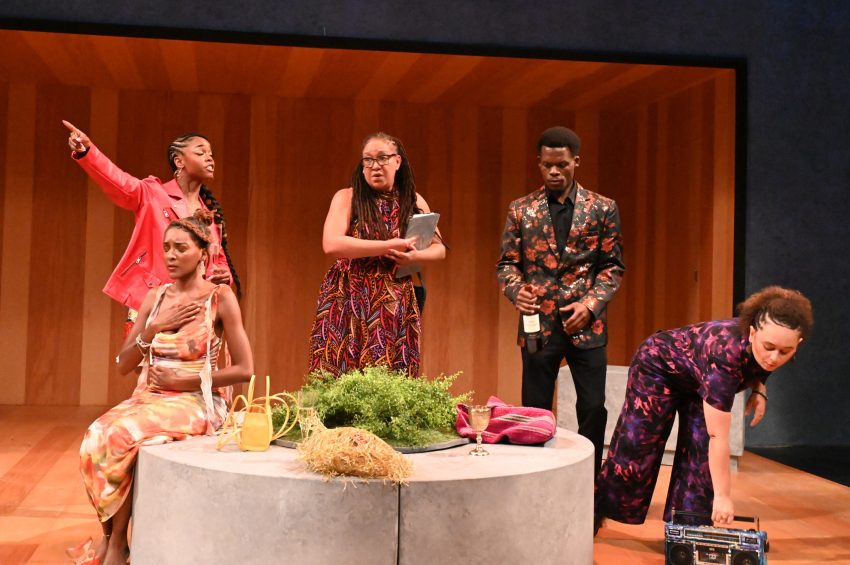
“Shipping & Handling” Challenges with Wise ‘Black Robots’”—at Crowded Fire
Star Finch Explores AI, Channeling the Genius of Black Women
by Mary Lou Herlihy
“Shipping and Handling” is voluble and experimental, bursting with humor and intrigue. Dr. Mother Mercy offers us a wildly imaginative future—complete with her brood of dancing “Black Robots.”
Playwright Star Finch’s fantastical meditations on Black women’s creativity and power feel like fragments of a play still evolving. Yet she raises an important, timely question: Can we trust people who don’t look like us, who do not really SEE us, to shape our future?
Crowded Fire Theater does an admirable job of staging Finch’s complex asynchronous tale in Three Acts. By reversing the timeline, she starts with actors celebrating at a post-play party. They are charming, and fun to eavesdrop on.
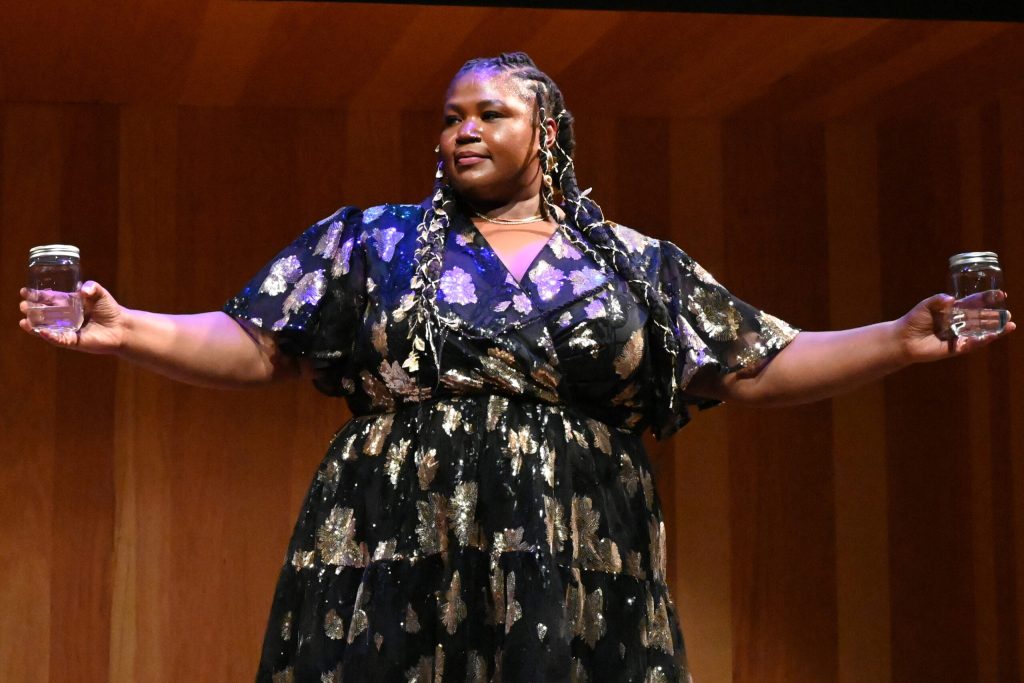
In Scene Two, skillful Rolanda D. Bell plays the solitary “Playwright,” wearing a shimmering black and gold dress. At first, a red balaclava covers her face. She queries the audience, bringing forth answers that evoke the conditions of Black life in America.
Bell commandeers the “Talk-Back,” so that SHE talks, and WE answer HER questions—a TED Talk on steroids. She distributes instruments according to self-identified groups—Black-bell, People of Color-shaker, White-maraca. When she says, “Let’s hear some white noise,” I laugh, hoping to learn something new as a minority.
After her intense questioning, Bell passes around sacred jars—evoking a meditative process. The talk-back puts the focus on us instead of on the play itself.
In Act Three, finally, we see the play (within the play). Powerful Cat Brooks is the intriguing, semi-divine leader/inventor/healer called Dr. Mother Mercy. She has created a human-like race of Black robots. As Mercy, Brooks speaks warmly to her mysterious robot helpers: Attendant Time (sprightly Tierra Allen) and her ultimate humanoid creation Indigo (spellbinding Davia Spain).
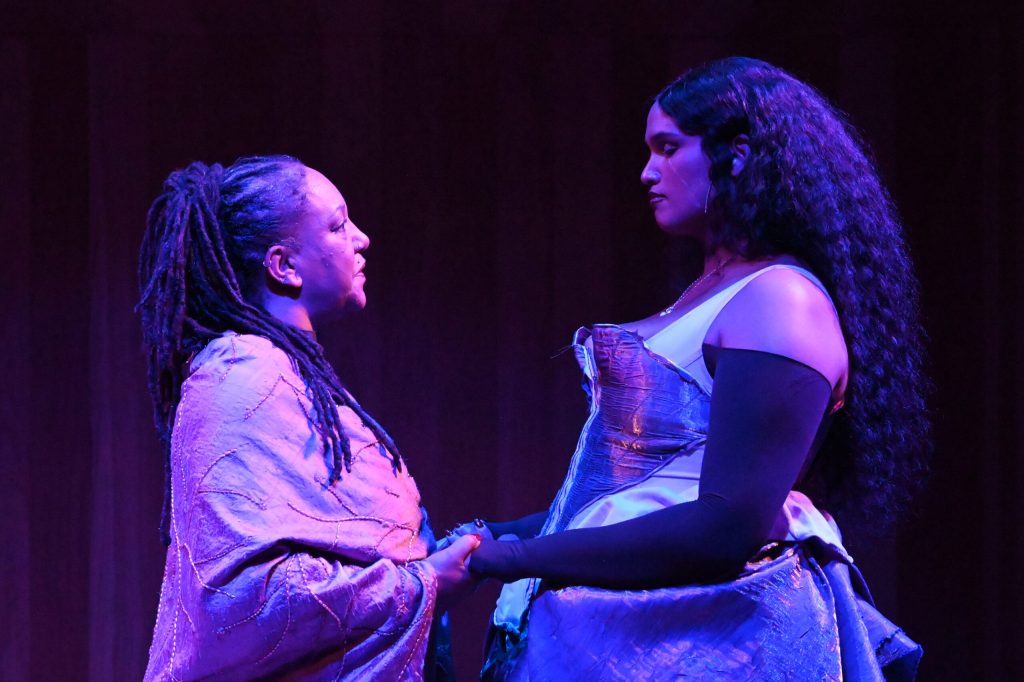
In delightfully dramatic exchanges with her creator, Indigo’s vocalizations and movements are beautifully haunting. Her dazzling costume and regal bearing mark her as something greater than robotic. Her existence challenges us to find the line between human and robot.
The actors who play robots enjoy a post play cast party in Act One. This close-knit community of five inspiring actors—four women and one man, challenge one another, and us, with a barrage of futuristic riddles:
- Has Botox paved the way for artificial perfection?
- Can robots mask their own intentions?
- Are we passing along our generational traumas to our creations?
Delightful costume design by Brook Jennings suggests mystery: curious birds-nest straw masks with mesh face-coverings shock with an ancient/modern quality. Passionate robot Tierra Allen coaxes our attention with playful physicality.
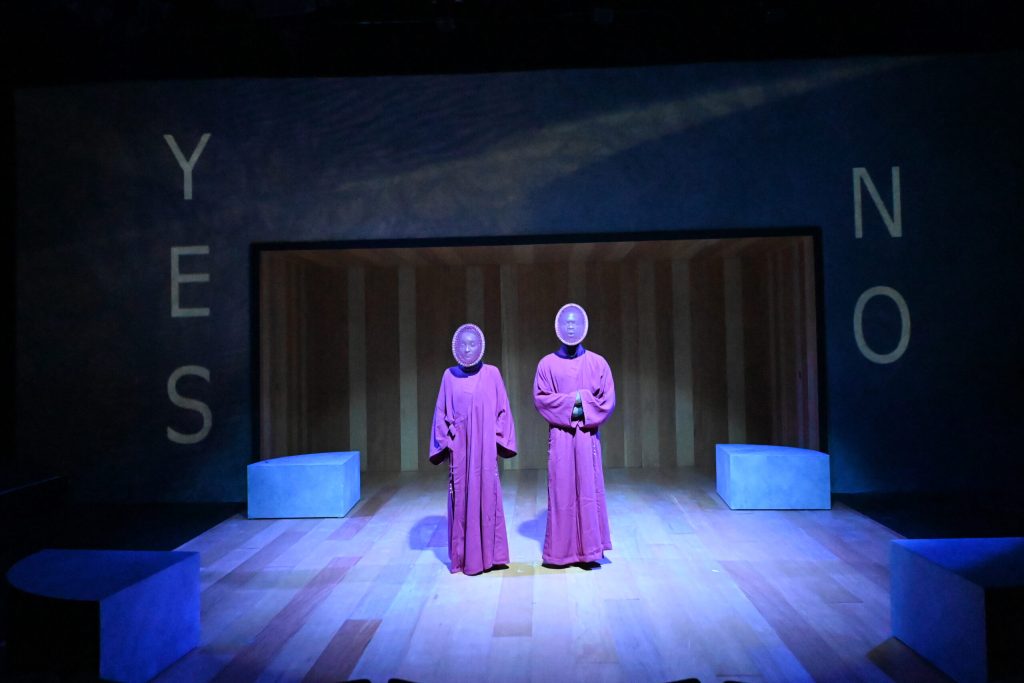
Luminous Jasmine Milan Willams commands the stage in a beautiful, slinky, flowered dress and fabulous big hair. Williams gestures to her fellow cast members, getting them to repeat her words: “I am not afraid,” leading them in a calming dance ritual.
But there is reason to be afraid. Red flashing lights and loud sirens erupt to remind us that it is not safe to be Black in America.
Crowded Fire presents a complex, experimental production of a new play, a new path. “Shipping and Handling” presents challenges as well as empowering revelations. I found both high peaks and uncanny valleys to explore.
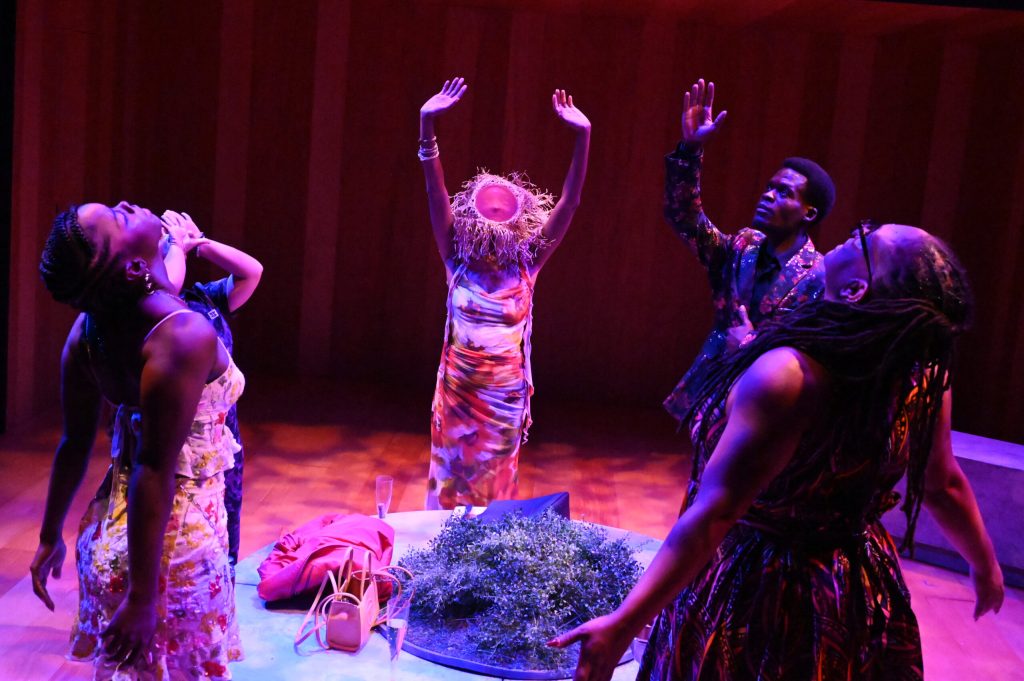
“Shipping & Handling” by Star Finch, directed by Lisa Marie Rollins & Leigh Rondon-Davis, at Crowded Fire Theater, Fort Mason, San Francisco. Info: crowdedfire.org – to September 7, 2024.
Cast: Tierra Allen, Rolanda D. Bell, Cat Brooks, Jamella Cross, Andre K. Jefferson, Davia Spain, Jasmine Milan Williams, and hodari blue.
Banner photo: Jasmine Milan Williams, Jamella Cross, Cat Brooks, Andre K. Jefferson, and Tierra Allen. Photos by Jay Yamada.